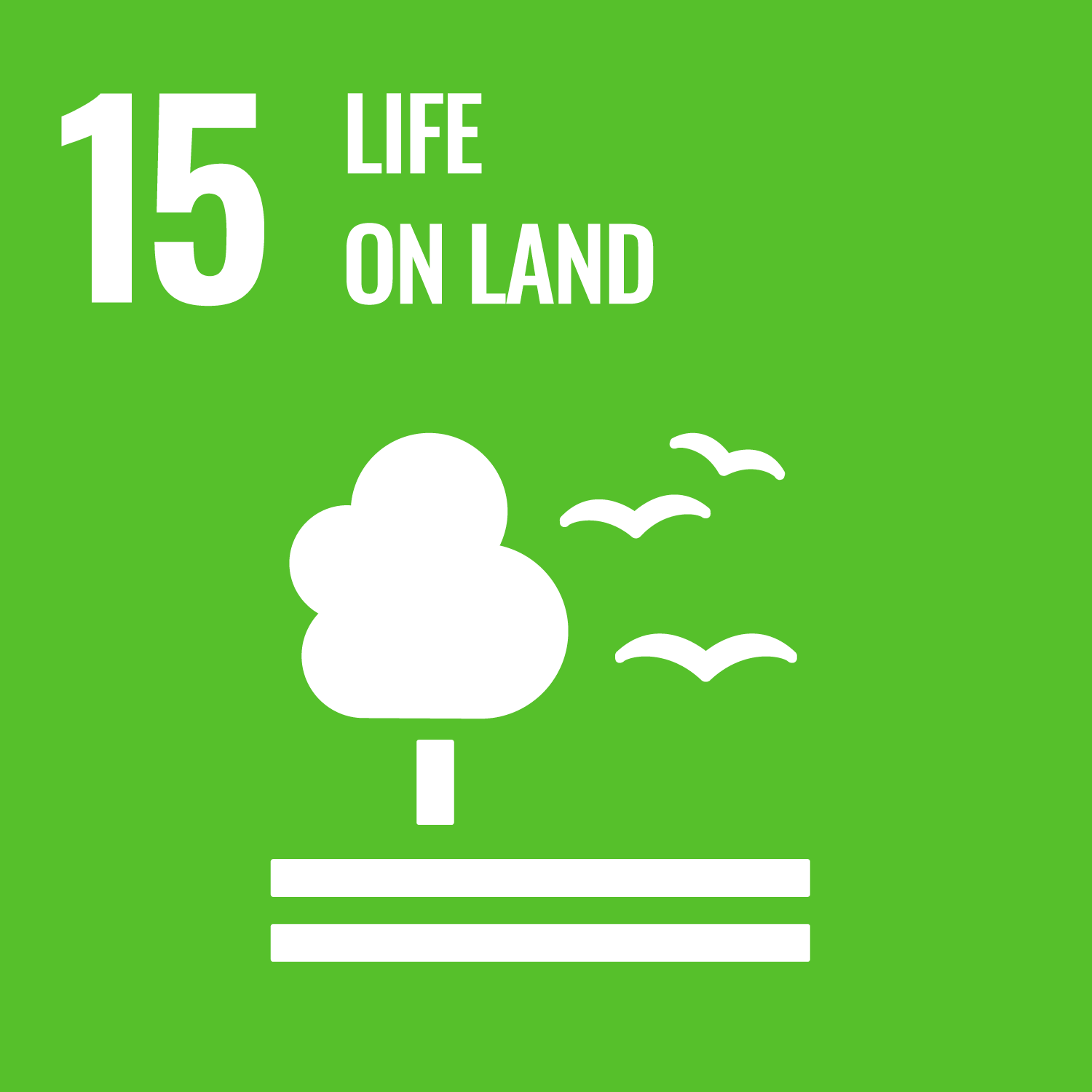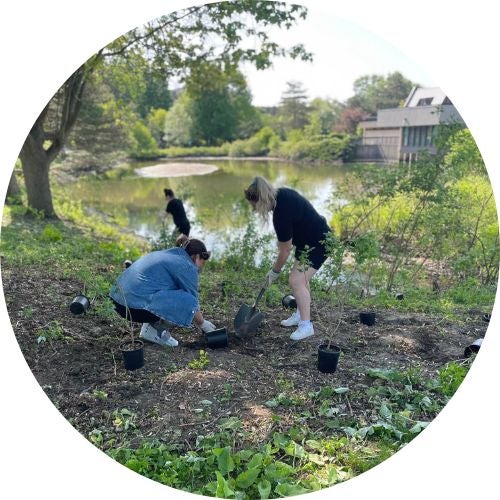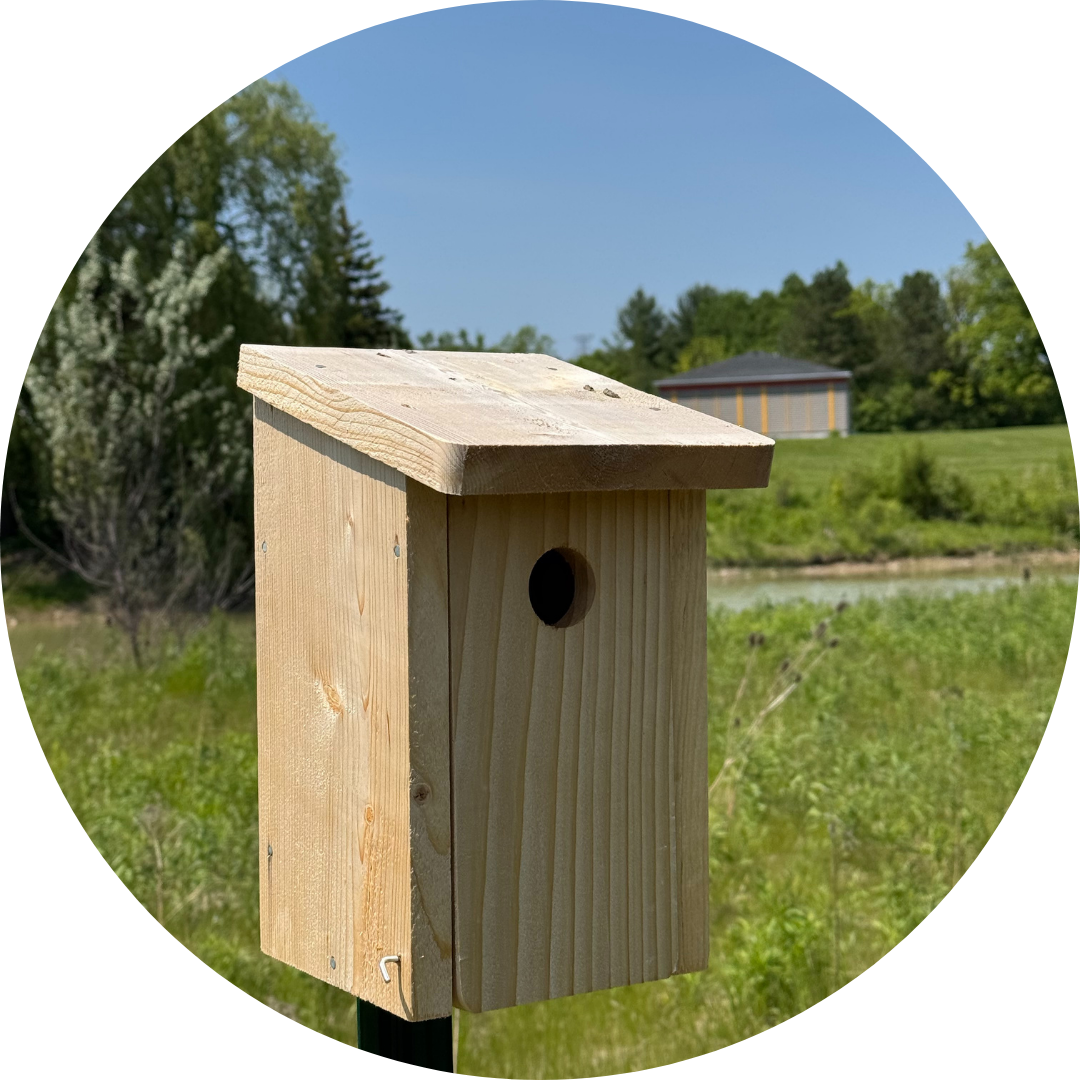
We're committed to protecting and expanding green spaces on campus.
A vibrant and healthy ecosystem is a key part of a sustainable campus. With over 1,200 acres of property, the way we manage our campus grounds has a significant impact on the local community and the many species that call it home. Waterloo's green spaces and natural areas are free and open to the community, serving as a destination for the public to connect with nature, relax, and travel on trails and pathways. Many ecosystems are deeply connected with the community, from the Laurel Creek corridor that connects through the Environmental Reserve up to the neighbouring Laurel Creek Conservation Area, and down through the main campus to Waterloo Park. Through teaching, research, and practice, Waterloo has worked with the City and Region of Waterloo, the Grand River Conservation Authority, and local environmental non-profit organizations to steward and protect these shared and integrated ecosystems.
Learn more about Waterloo's approach to sustainable land management, as well as green features to explore on campus:
Supporting SDGs





Sustainable Land Care Standard
In 2021 and 2022, the Sustainability Office and Grounds led the development of a Sustainable Land Care Standard to guide how Waterloo will manage its grounds and natural spaces over time. In 2023, the standard was approved and includes actions and recommendations in seven focus areas.

Naturalization
The Sustainability Office and Grounds have led a variety of campus naturalization projects over the last several years, including community tree plantings, pollinator gardens, and the removal of invasive European buckthorn and garlic mustard along the Laurel Creek corridor and other parts of campus. More projects are planned for fall 2023 and beyond!

Food garden pilot
Due to growing interest for food gardens on campus, the Sustainability Office is piloting a food garden project on main campus, in partnership with Plant Operations. In late May 2024, 10 food garden plots (4x12' each) will be installed adjacent to the Healing Forest by the V1 residence, and will be available for student and employee use on a first-come, first-served basis.

Bird glass collision monitoring
In Canada, bird window collisions result in 16 to 42 million bird deaths per year and is a leading cause of human impacts on bird mortality (Government of Canada). The UW Society for Ecological Restoration (SER) has been working towards a safer campus for our feathered friends. If you find a bird mortality or see a bird collision, please feel free to report it using the UW SER Bird-Glass Collision Monitoring form. This program is helping to gain a better understanding of collision hotspots on campus.

Bird and bat boxes
The University of Waterloo has installed bird boxes in its Environmental Reserve to provide critical nesting sites for Purple Martins, Tree Swallows, and Wood Ducks, whose populations have declined due to habitat loss. Bat boxes were also installed to mimic natural tree cavities, offering safe roosting habitats for endangered local bats to support ongoing conservation efforts.

Free Store Seed Library
The Free Store Seed Library is an initiative developed to promote sustainable food systems, enhance food security, and support biodiversity within the university community. By providing free access to native and non-invasive seeds and facilitating community seed sharing, the initiative empowers members to grow their own food. It fosters resilient, self-sufficient communities and encourages experiential learning, contributing to awareness of the environmental impacts production, consumption, and disposal patterns in the food system have globally and locally.

iNaturalist
Join the University of Waterloo's iNaturalist project today! Help us understand diversity by observing and identifying the species on campus grounds.

Salt management
Ice and snow management is a critical safety measure during Waterloo winters. Plant Operations is committed to reducing the amount of salt used in the winter, and has been piloting a new brine system in the place of traditional blanket salt applications.

Pesticide use
Plant Operations phased out all pesticide use across campus by 1998. With the exception of sports fields, which need to be treated for safety purposes, the grounds team manages weeds through natural methods such as hand-weeding, using hot water to kill off weeds, and planting native species. Plant Operations will also be piloting a steam system as a sustainable alternative in the coming months.
Green spaces

Arts/Environment Garden
Located between HH, PAS, and EV1 lies a little-known paradise. The Arts/Environment Garden contains seven themed 'mini-gardens' with a variety of plants to encourage local pollinators to visit. With many benches and seating areas, it's a great place to study, eat lunch, or relax on a sunny afternoon.

Environmental Reserve
The Environmental Reserve lies just across the road on Columbia Street. This 109-acre space has sports fields, forests, meadows, and Columbia Lake. The reserve provides teaching, research, public education opportunities, protected habitat for wildlife, and a legacy for future generations.

Laurel Creek
On the west side of South Campus, Laurel Creek meanders down from the Village 1 green and passes under three bridges between campus and the affiliated colleges. It’s home to herons, geese, ducks, and more, and offers a relaxing space for contemplation.

Peter Russell Rock Garden
Located between MC, QNC, and ESC, the Peter Russell Rock Garden is an interior oasis with over 70 types of rocks and minerals. With benches and other seating, it's the perfect spot for an outdoor lunch, meeting, or moment of solitude.

Community resources
There are many programs and resources in the community to support spending time in nature and creating more sustainable green spaces at home – whether you have a yard or a balcony. Some examples include:
- City of Waterloo programs in parks
- City of Waterloo stormwater credits
- Rain Smart Neighborhoods, rain garden coach, and backyard tree planting programs from Reep Green Solutions